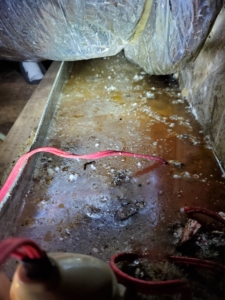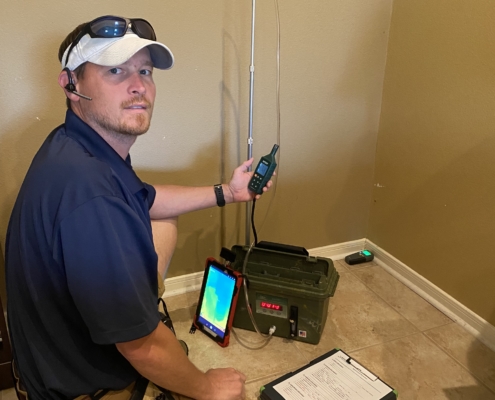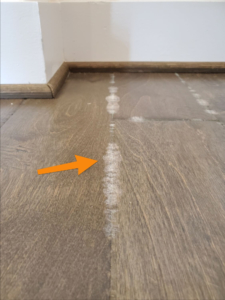What is Mold?
Mold is a fungal growth that forms and spreads on various kinds of damp or decaying organic matter. There are many different mold species that come in many different colors. Molds are sometimes referred to as mildew.
Your Mold Inspection
Whether you are buying, selling or maintaining your home, Singular Mold Inspections provides professional and quality service from the moment you call. We will walk through your home together and teach you as much as you want to learn. We strictly follow the International Association of Certified Indoor Air Consultants standards of practice.
Have Questions?
Not sure if you have mold, or what to do? Let Singular Mold Inspections help answer your questions and guide you.
What Is mold?
From the Center for Disease Control & Prevention (CDC):
“Mold is a fungal growth that forms and spreads on various kinds of damp or decaying organic matter. There are many different mold species that come in many different colors. Molds are sometimes referred to as mildew. They are found both indoors and outdoors in all climates, during all seasons of the year. Outdoors, molds survive by using plants and decaying organic matter such as fallen leaves as a source of nutrition. Indoors, molds need moisture to grow as well as a carbon source from building materials or building contents.
Excess moisture is generally the cause of indoor mold growth. Molds reproduce by releasing tiny spores that float through the air until landing in other locations. When they settle on wet or moist surfaces, the spores can form new mold colonies. Moderate temperatures and available nutrient sources make most office buildings ideal for mold growth.
Recent media attention has increased public awareness and concern over exposure to molds in the workplace. While this may seem to be a new problem, exposure to molds has actually occurred throughout history. In fact, the types of molds found in office buildings are not rare or even unusual. It is important to understand that no indoor space is completely free from mold spores – not even a surgical operating room. Molds are everywhere, making our exposure to molds unavoidable, whether indoors or outdoors, at home or at work.
“Toxic Mold” & Stachybotrys chartarum
Certain molds are toxigenic, meaning they can produce toxins (mycotoxins), but the molds themselves are not toxic, or poisonous. Hazards presented by molds that may produce mycotoxins, such as Stachybotrys chartarum, should be considered the same as other common molds which can grow in your house or workplace. Contradicting research results exist regarding whether toxigenic mold found indoors causes unique or rare health conditions such as bleeding in the lungs. Research is ongoing in this area.
Mold growing in buildings, whether it is Stachybotrys chartarum (Stachybotrys atra) or another mold, indicates that there is a problem with water or moisture.”
Schedule Your Mold InspectionToday
- Suspect mold?
- Want to insure your home does not have conducive conditions present?
- Having chronic health problems?
- Musty and unpleasant odors occurring?
- Visible mold growth evident?



